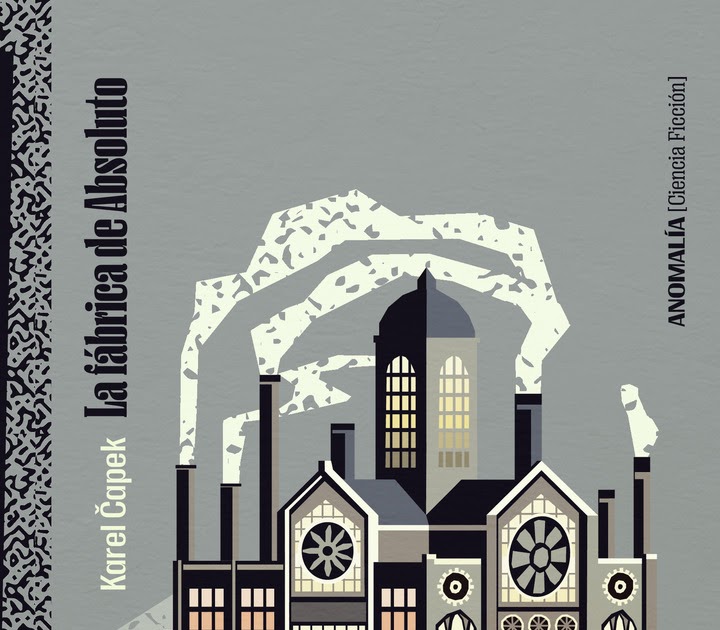
Original Language: Czech
Títulu Original: Absolute
Year of publication: 1922
Translation: Rafael R. Ortega
Valoración: Advisable
Imagine that there is a revolutionary machine called karburetor, capable of producing unlimited energy combusting only a little matter. This machine destroys the matter that feeds it completely, without leaving any tangible residue. The result of this is that God, or the Absolute, who is confined in all things, is released by the world, causing mystical exaltation, miracles of all kinds and the collapse of civilization as we understand it (“the world was shaken under the rumble of armies, (…) The borders of the states twisted as worms on earth, and everything fell apart in ruins,” pg. 203).
Like the mentioned THE SALAMANDRAS WARby the way, The Absolute Factory He is able to maximize his premise. Also, like the other work mentioned, it manages to offer an admirable panoramic view of the world in which it takes place.
Because a chronicler shows us how people, industry, religion, church, economy, medicine, to the proletarian cause, to different countries, etc … and do so through a handful of recurring characters affect, showing secondary vignettes, describing “seemingly local events” (of which “a great flow of historical events can be extracted”, pg. 191) opinion of several intellectuals with respect to the absolute.
Such an argument allows čopek to throw ideas of an amazing ingenuity around God, religion and faith. For example, about the relationship between the technicians and God expresses the following of the mouth of the engineer Rudolf Marek, inventor of the karburetor: «I do not believe in anything. (…) I don’t want to believe. I’ve always been an atheist. I have believed in the field, in progress, and nothing more. I am a man of science (…); And science cannot accept the existence of God. / (…) It is a case of him or science. I do not affirm that God does not exist; I just say that it should not exempt or, at least, that it should not be shown. I believe that science is slowly displacing it, or in any case preventing it from managing; and I consider that this is the important mission of science. ” (pg. 29)
For his part, GH Bondy, director of Metallo-Electric Company, serves čopek to deliver a more permissive point of view on this issue: «From the business point of view (…), it is an indifferent issue. If you want to exist (…), that it exists. We are not mutually exclusive. ” (pg. 29)
Another very suggestive idea is dedicated to church. Bishop Linda affirms the following: «Gentlemen, do not deceive themselves thinking that the Church brings God to the world. The Church encloses it, controls it. ” (Pg. 46)
The leading cast of The Absolute Factory It is not particularly memorable. This, however, does not bother, we have already clarified that this is a novel of ideas, and that prioritizes the constraint of his world to that of his characters (“let’s abandon the attempt to psychologize great men,” says the chronicler in Pg. 180).
However, we must admit that Bondy, perhaps the closest thing to a protagonist in this work, has some complexity. Čopek uses it to show an average human being (that is, selfish and full of defects) surrounded by saints.
Bondy explains to his fiancee: «I could never marry a woman capable of reading my thoughts. It could be religious to the extreme, charitable without limits with the poor; I can afford it, and also, it gives me good publicity. He would even support virtue, Ellen, for love of you. I would support anything. (…) But they, neither business nor life in society are possible without private thoughts. And marriage, above all things, is inconceivable without those hidden thoughts. ” (Pg. 84)
Bondy himself is eventually affected by the absolute. Marek is told about it: «I have overcome it, Rudy, I have defeated it. (…) When he invaded me, it was the happiest moment of my life. ” Then describe the symptoms: «Love for others. (…) I was frantic of love. I would never have believed that I could feel something like that. (…) / I have expelled it. Like a fox that starts a leg to free itself from a trap. ” (pg. 122-123)
Ah, Bondy. Already in the climax of the novel (very round, by the way), he affirms to someone as “independent and experienced” as he: the absolute “is the true God. (…) But (…) This true God is too great. / (…) is infinite. There is the problem. Everyone appropriates a small part of him and then believes that he owns the whole. (…) To convince themselves that God belongs to them completely, they have to eliminate anyone who thinks otherwise. ” (pg. 200)
Little more to add. Just reiterate that The Absolute Factory It is a classic of science fiction that presents and develops an interesting concept, which holds a perfectly round closure and is disregarding surprising acuity ideas and humor. Čopek at its maximum splendor, gentlemen.
Source: https://unlibroaldia.blogspot.com/2025/04/karel-capek-la-fabrica-de-absoluto.html


